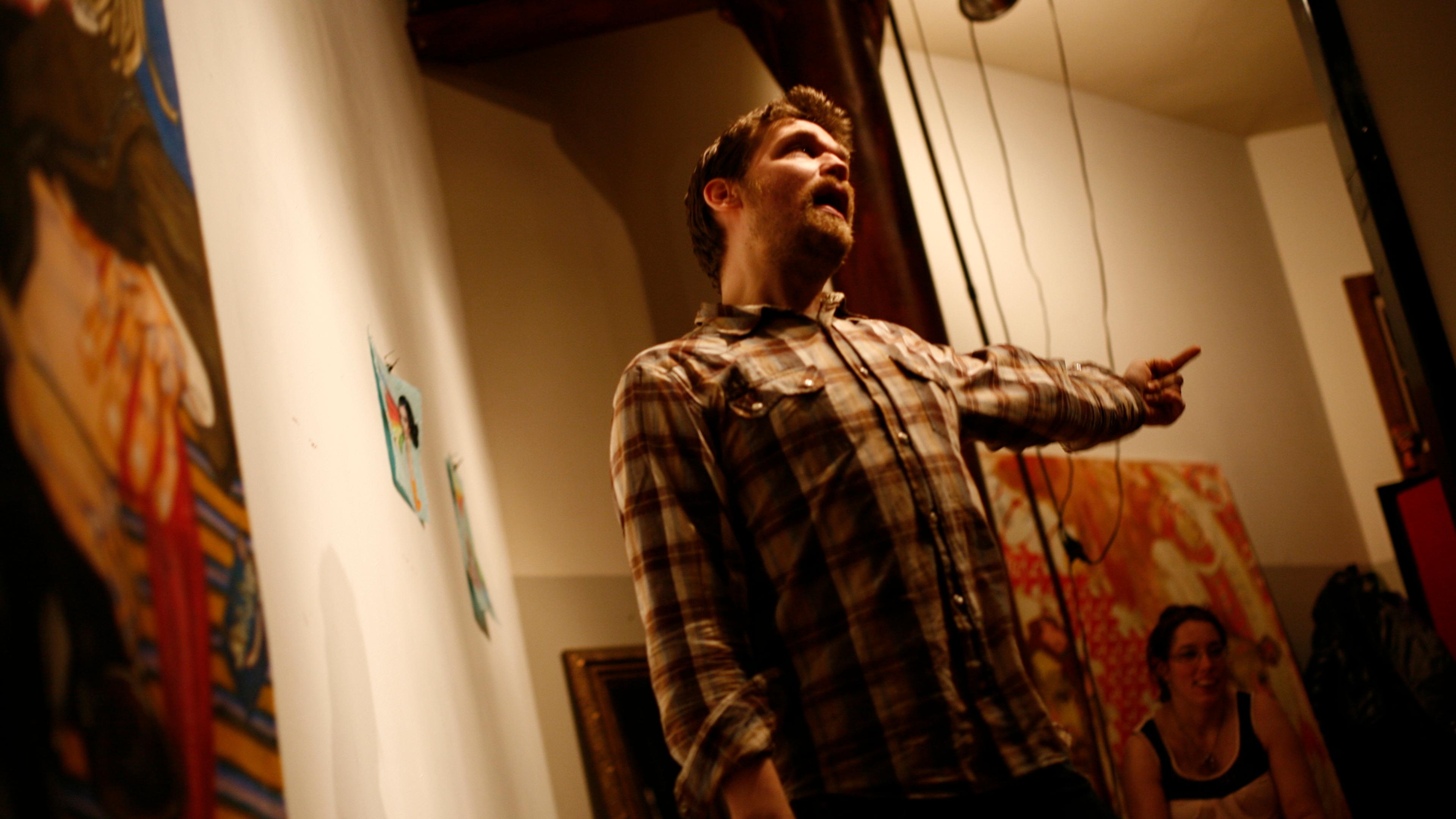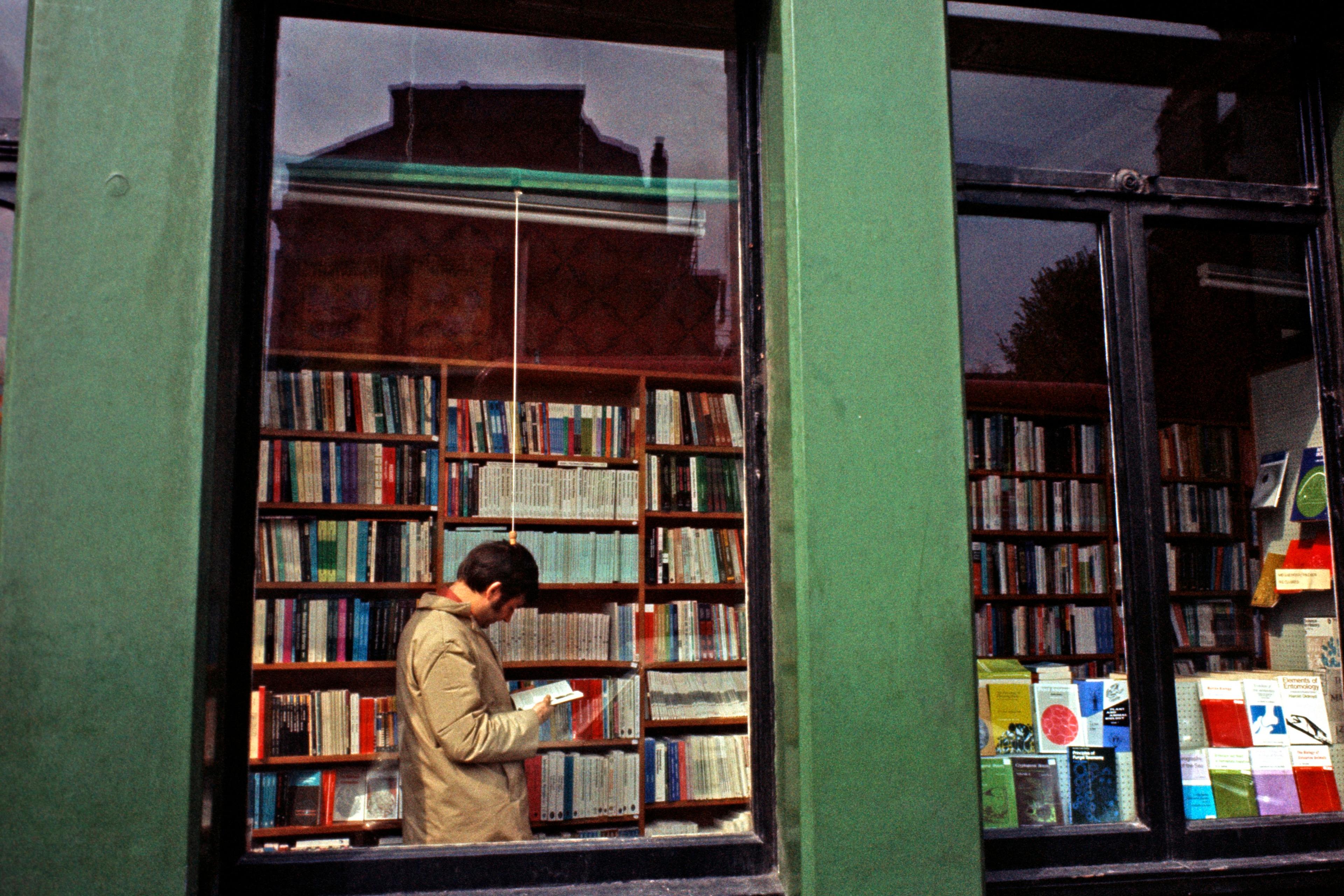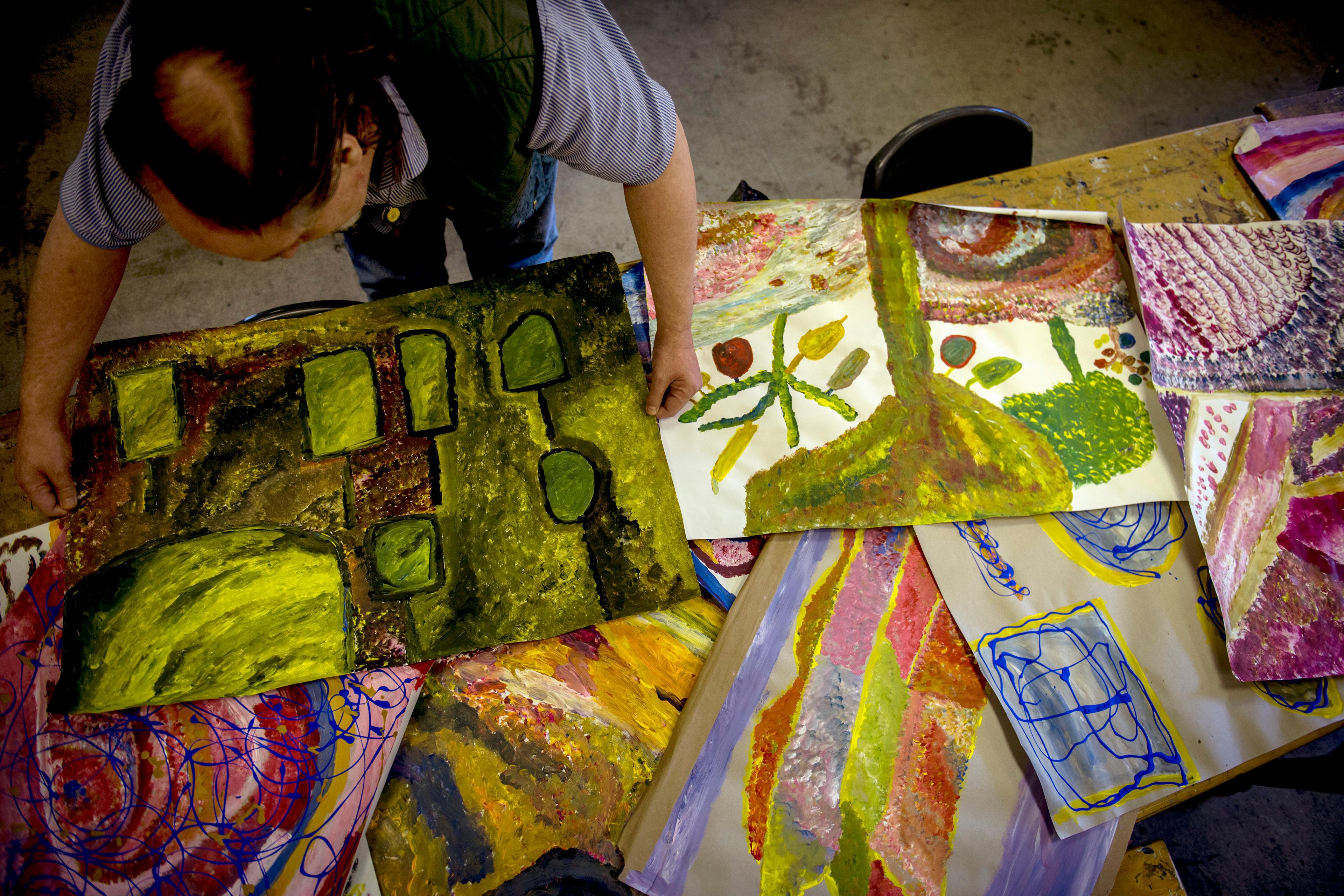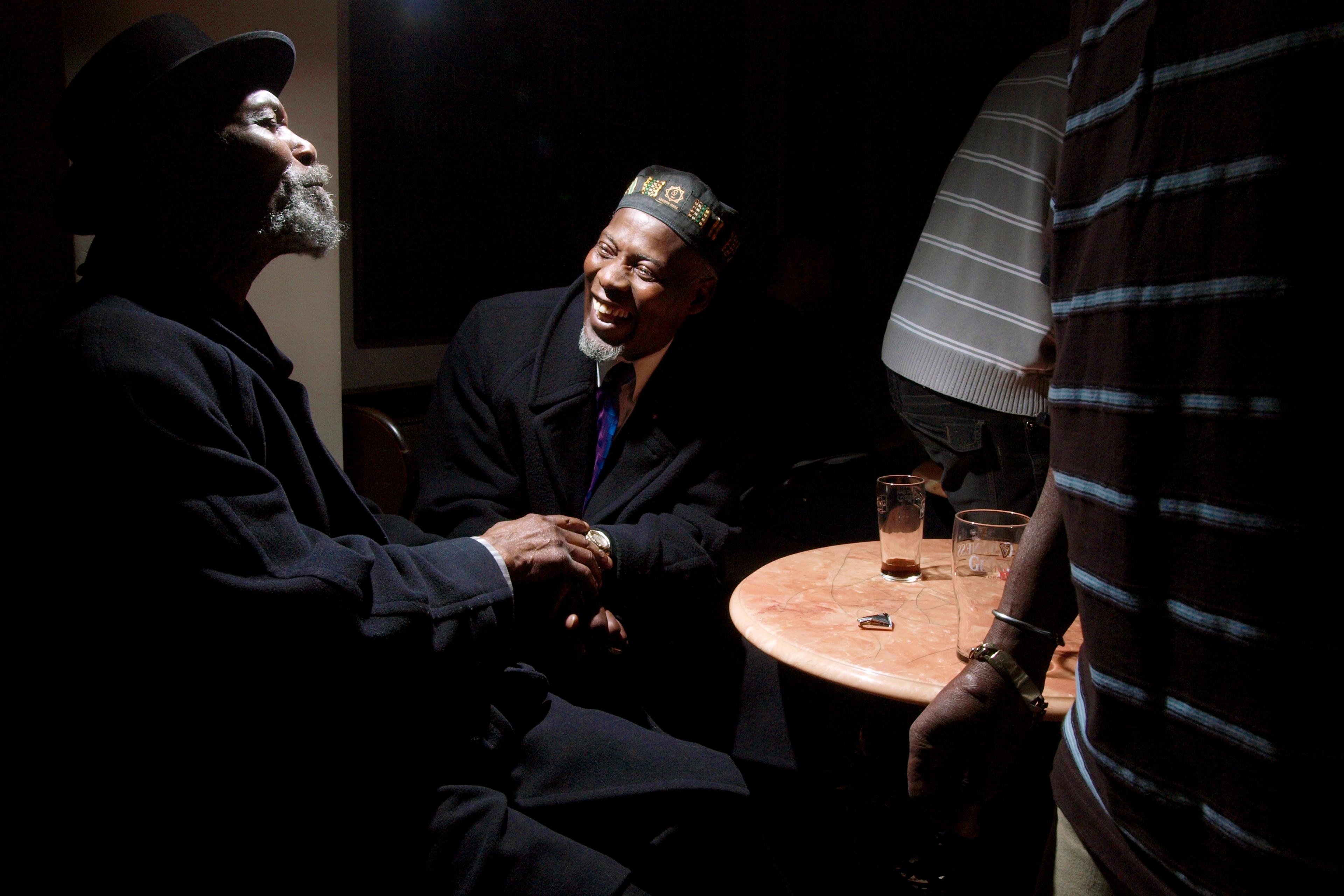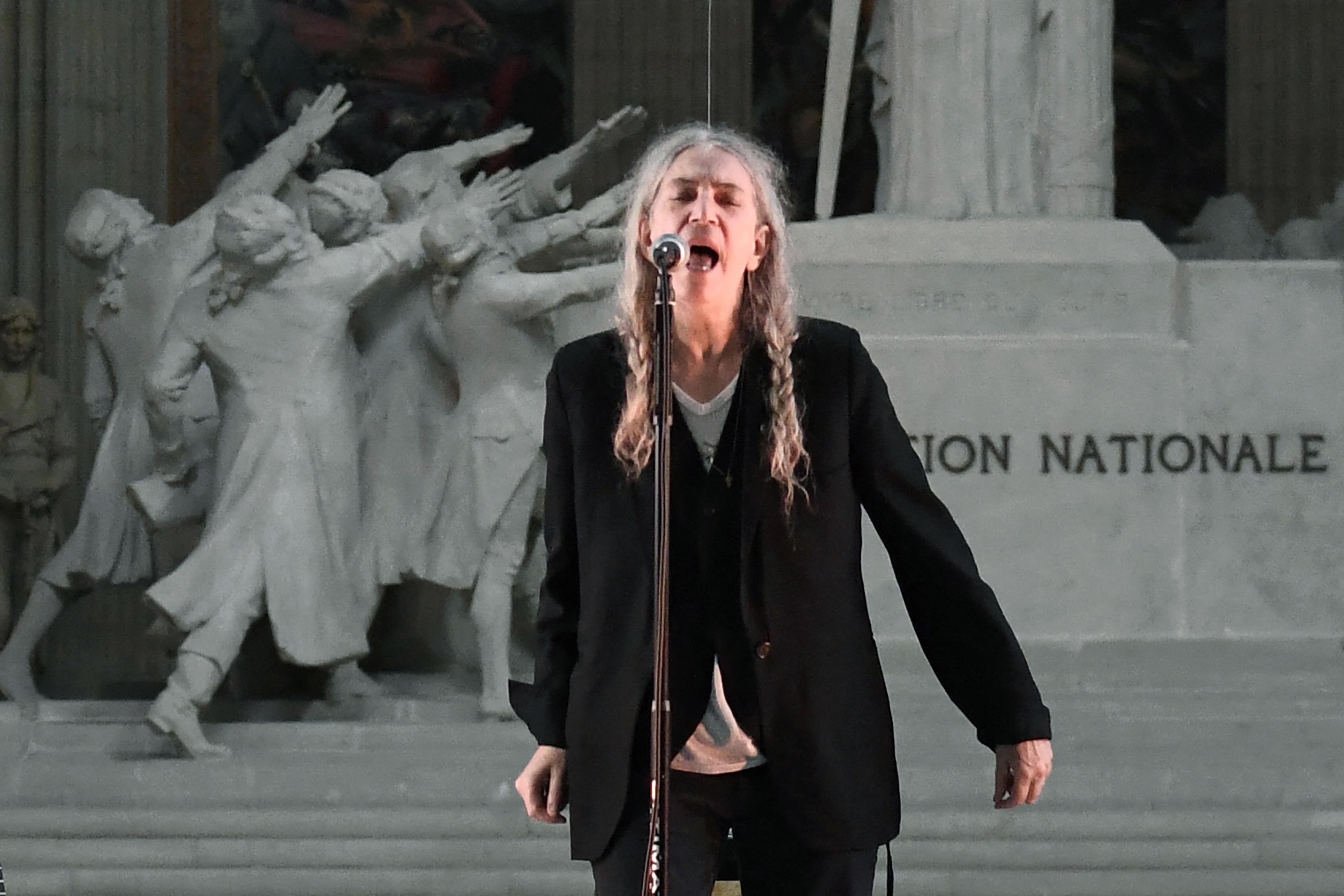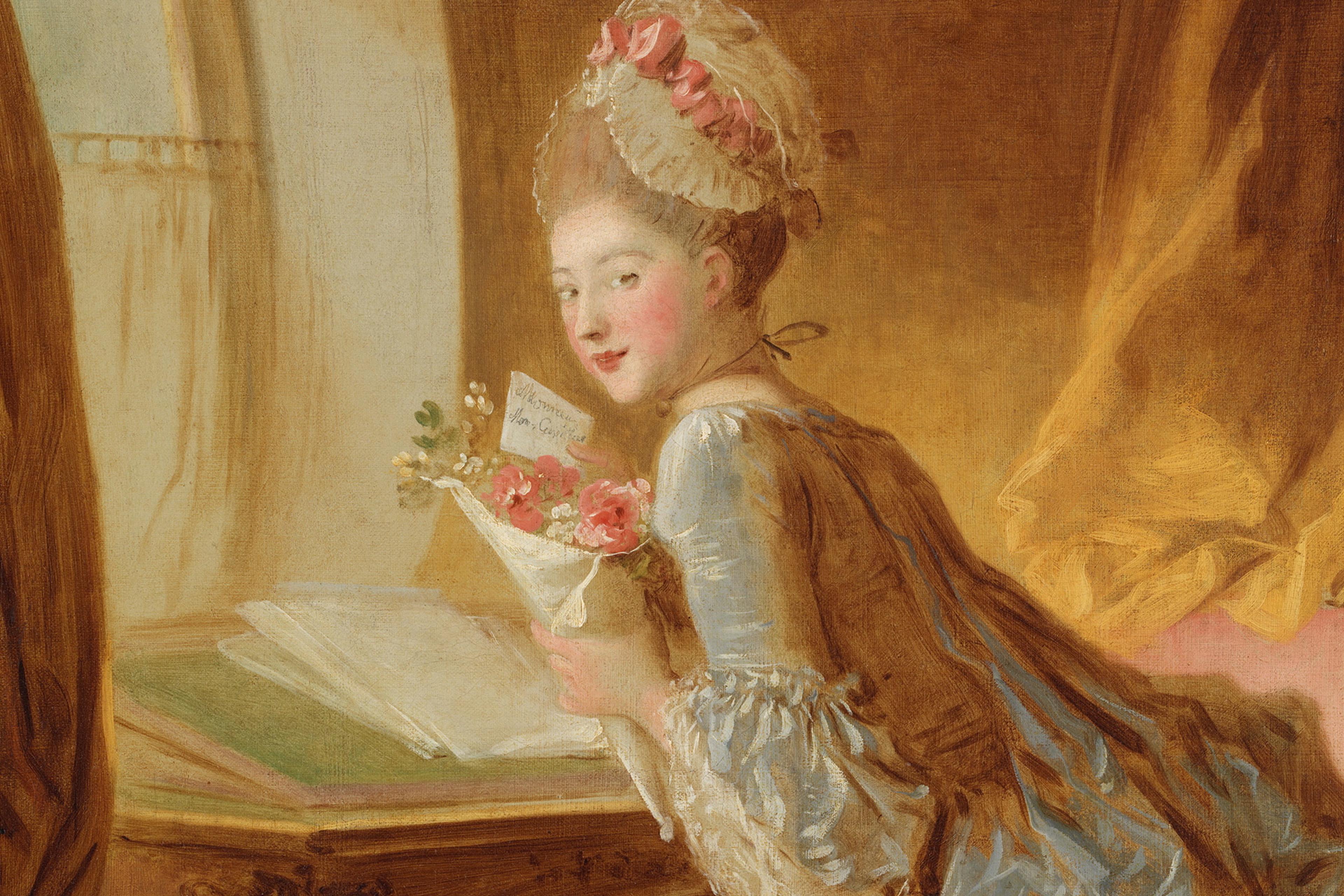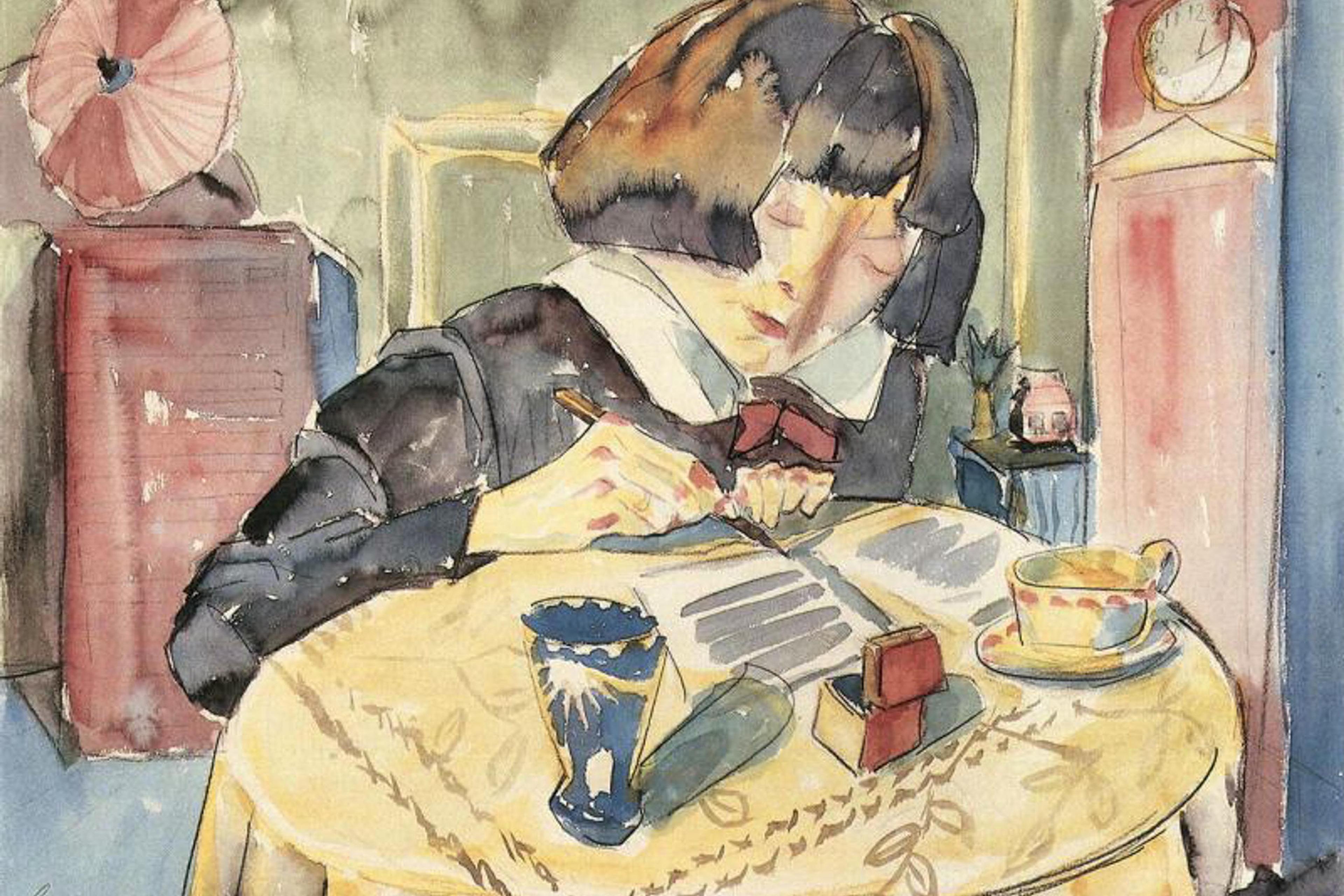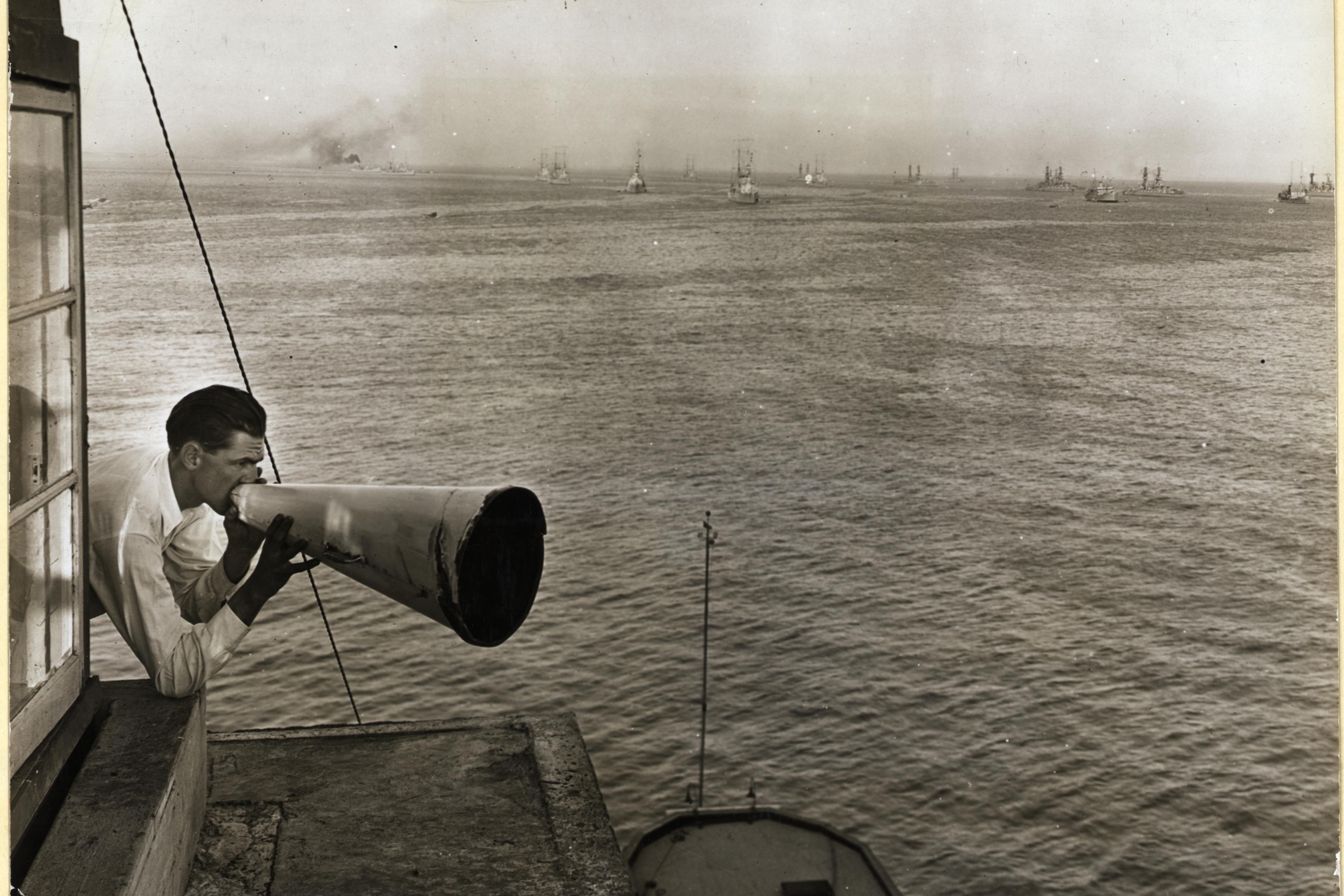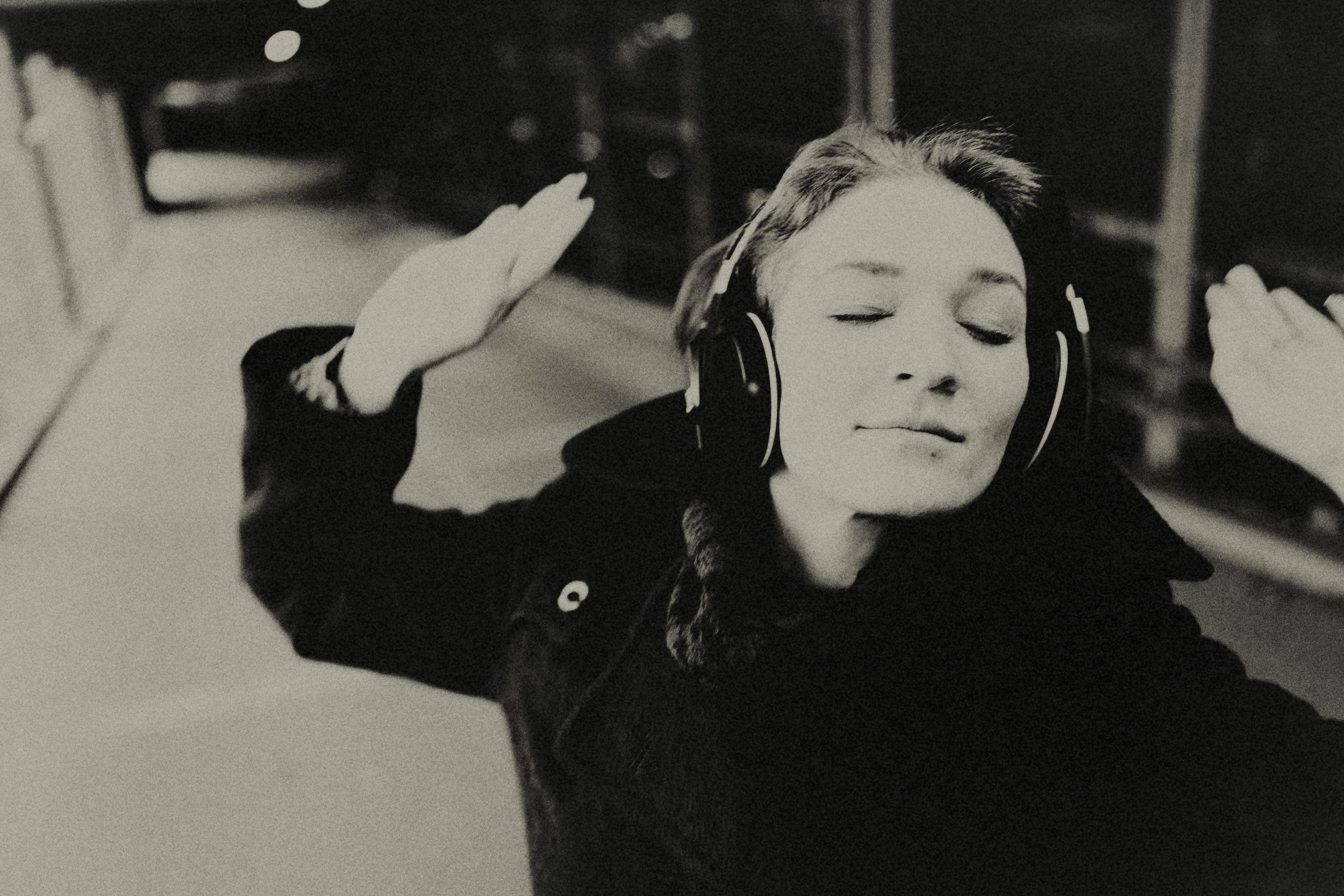Imagine finding yourself in the audience of a spoken word open-mic event. You’re captivated by the performer on stage as they lay bare their deepest thoughts to the room, exposing their vulnerability:
Today I bought you flowers,
How strange meanings can change,
What was once a symbol of joy is now one of pain,
A universal language for when you don’t know what to say
The crowd is attentive but far from silent. Throughout the performance, you hear snapping fingers and cheers, signifying approval of specific lines. Someone shouts ‘Rewind!’ – they were impressed by a particular line and eager to hear it again – and the poet obliges.
Towards the end of the performance, the poet stumbles, momentarily forgetting their words. If you had never attended a spoken word event before, you might feel uneasy, anticipating judgment from the audience. Instead the room fills with a supportive symphony of clicking fingers, clapping and encouraging shouts of ‘You’ve got this!’ The poem concludes, prompting thunderous applause and the poet returns to their seat. The performance has ended, but its energy lingers throughout the night. During intervals and after the show, you spot the poet discussing their poem with audience members, keeping its spirit alive.
Spoken word poetry events are far from your standard poetry reading. Many people today think of poetry as a silent, individual act but it actually started as an oral tradition. Before mass literacy, poems and stories were shared verbally and performed to the public. For example, during the medieval era, it was customary for texts to be performed by an entertainer, such as a minstrel, or the author themselves. In more modern times, mass media provided audiences with alternative means of entertainment and the art of storytelling declined. The recent and increasing popularity of spoken word (also known as performance poetry) is poetry returning to its oral roots.
In my 10 years participating in spoken word and five years researching it, I’ve seen how it helps people achieve healing and emotional balance. It shares many benefits with written poetry, and other forms of expressive writing, including helping us organise our thoughts, rewrite our narratives and process our emotions – all of which enable us to better cope with difficult experiences or everyday emotions. If you’ve ever written a poem or even journalled about a personal experience, you might already have experienced the cathartic release achieved by putting your feelings into words. Spoken word poetry offers all these benefits but with the added dimension of social connection, which is central to its essence and is critical to helping participants have a healing experience.
Spoken word has global popularity, with established organisations, venues and competitions across the world
At a spoken word open-mic event, people sign up to perform their original poems. A local poet will typically organise and host, and venues include cosy cafés, lively pubs, inspiring arts spaces, even cinemas. Most acts are allocated around three to five minutes each, but some events will feature an established poet as a headline act and they’ll usually deliver a longer curated set.
Spoken word has global popularity, and although it’s mainly made up of independent venues, there are established organisations, venues and competitions across the world. In England, Apples and Snakes was formed in 1982 and is the leading spoken word organisation in the country, while in America, the Nuyorican Poets Café, founded in 1973, stands as a highly respected spoken word venue. The World Poetry Slam Organization holds a competitive version of spoken word in a different city each year, most recently in Rio de Janeiro, Brazil.
Whether you’re a performer or in the audience, spoken word poetry can help you better understand yourself. It fosters self-reflection, emotional balance and the exploration of identity. Through this intimate form of expression, together we delve into our emotions, thoughts and personal narratives.
Many poems at spoken word events are autobiographical, addressing themes and topics that most of us can relate to – whether it’s falling in love, heartbreak, grief, prejudice, struggles with mental health, or frustration with political climates. These are human problems. One poet I know performs as a way to process the grief surrounding her father’s death. When she performs these poems, she feels as though she has released her emotions to the audience, lightening the burden on herself. This is also how I feel when performing poems about my late grandfather. I have some poems that are focused on my experience with grief, and others that are in celebration of his life:
Today we swap stories,
About the person missing from the table,
Pass dishes like a baton
Eat sandwiches filled with memories,
Try to swallow the lump in our throats
It’s not just the sharing of poetry that is healing. It’s the connections that form between the audience and the poet. Poets can be themselves in this safe space, where judgment and ridicule are absent. Other poets and audience members offer encouragement, validation and empathy, creating a space where vulnerability is celebrated and embraced. The poems act as starting points for conversations that can continue beyond the event.
A feeling of catharsis still occurs when someone puts your feelings into words
I remember one time, after performing a poem about processing my grandfather’s death, I got into a conversation with another poet who’d had a similar experience. We relayed stories about our families, connected by this common experience, and shared tools that were helping us heal, such as looking through photographs, jotting down memories and writing letters to them.
The feeling of collective healing also applies to audience members who relate to the poet’s words. Hearing someone who is going through the same feelings or experiences that you are going through or have experienced in the past can make you feel less alone and more connected to others, knowing that the struggles are shared.
Sometimes listening to these words can be difficult if they relate to your experience. During a conversation I had with a Black female poet, she told me that sometimes it can hurt to hear people’s experiences of racism or sexism that she has also endured. Despite these things being difficult to hear, a feeling of catharsis still occurs when someone puts your feelings into words. Have you ever put on a sad song when you are heartbroken? Or watched a film you know will make you cry when you are unhappy? Doing these things brings up emotions and can hurt, but they also allow us to process emotions and feel a release.
Spoken word also fosters connection and healing by exposing us to diverse experiences and promoting empathy. Spoken word is an incredibly accessible art form, requiring nothing more than attending the event and being willing to perform your words in front of an audience. There are very few rules, and the form is interpreted fairly broadly. As long as you are performing an original piece, it isn’t too long (under five minutes is a typical requirement), and doesn’t include any offensive content, it will be accepted at a spoken word event.
I’ve even seen rappers and singers perform their lyrics acapella, or poets playing instrumental backing tracks alongside their performance. If words are at the centre of the performance, there are very few limitations. The low barriers to entry attract an exceptionally diverse audience, bringing together individuals who might never have crossed paths otherwise. By actively engaging with people’s poetry and hearing their experiences first hand, we embark on a journey of empathy and perspective-taking. We can carry these feelings and skills into other areas of our lives, benefitting our relationships and perhaps even contributing to a more compassionate and harmonious society.
I believe spoken word poetry stands out among other supportive groups and communities due to its distinctive blend of self-expression, social connection and artistic creativity. Unlike other groups, such as book clubs, where participants engage with existing works, spoken word events provide a platform for individuals to share their own personal stories. If you’re intrigued by the world of spoken word poetry, I encourage you to seek out events in your area. Embrace the opportunity to share your own words or simply be present as an audience member. Start by searching ‘spoken word poetry’ in Eventbrite to see what’s on near you.
